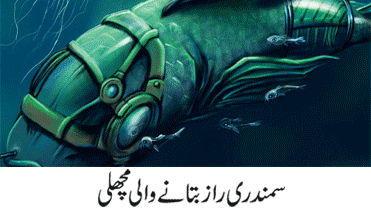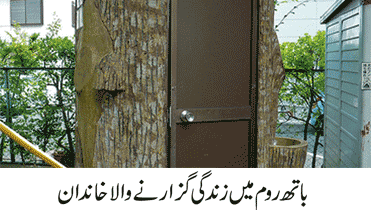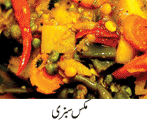Hadith About Visiting Gravesقبروں کی زیارت کے بارے میں
Hadith About Visiting Graves قبروں کی زیارت کرنے کے بارے میں حدیث
Abu Huraira reported: The Apostle of Allah ( صلی اللہ علیہ وسلم ) visited the grave of his mother and he wept, and moved others around him to tears, and said: I sought permission from my Lord to beg forgiveness for her but it was not granted to me, and I sought permission to visit her grave and it was granted to me so visit the graves, for that makes you mindful of death.
Book: Sahih Muslim, Chapter: Prayer - Funerals, Hadees No. 2259Narrated Abu Hurairah: The Messenger of Allah صلی اللہ علیہ وسلم visited his mother's grave and wept and cause those around him to weep. The Messenger of Allah صلی اللہ علیہ وسلم then said: I asked my Lord's permission to pray for forgiveness for her, but I was not allowed. I then asked His permission to visit her grave, and I was allowed. So visit graves, for they make one mindful of death.
Book: Sunan e Abi Dawood, Chapter: Funerals (Kitab Al-Jana'iz), Hadees No. 3234محمد بن عبید نے یزید بن کیسان سے ، انھوں نے ابو حازم سے اور اور انھوں نے حضرت ابو ہریرۃ رضی اللہ تعالیٰ عنہ سے روایت کی ، انھوں نے کہا: رسول اللہ صلی اللہ علیہ وسلم نے اپنی ماں کی قبر کی زیارت کی ، آپ روئے اور اپنے اردگرد والوں کو بھی رلایا ، پھر فرمایا : " میں نے اپنے رب سے اجازت مانگی کہ میں ان کے لئے بخشش کی طلب کروں تو مجھے اجازت نہیں دی گئی اور میں نے اجازت مانگی کہ میں ان کی قبر کی زیارت کروں تو اس نے مجھے اجازت دے دی ، پس تم بھی قبروں کی زیارت کیاکرو کیونکہ وہ تمھیں موت کی یاددلاتی ہیں۔
Book: Sahih Muslim, Chapter: Prayer - Funerals, Hadees No. 2259ابوہریرہ رضی اللہ عنہ کہتے ہیں رسول اللہ صلی اللہ علیہ وسلم اپنی والدہ کی قبر پر آئے تو رو پڑے اور اپنے آس پاس کے لوگوں کو ( بھی ) رلا دیا، پھر آپ صلی اللہ علیہ وسلم نے فرمایا: میں نے اپنے رب سے اپنی ماں کی مغفرت طلب کرنے کی اجازت مانگی تو مجھے اجازت نہیں دی گئی، پھر میں نے ان کی قبر کی زیارت کرنے کی اجازت چاہی تو مجھے اس کی اجازت دے دی گئی، تو تم بھی قبروں کی زیارت کیا کرو کیونکہ وہ موت کو یاد دلاتی ہے۔
Book: Sunan e Abi Dawood, Chapter: Funerals (Kitab Al-Jana'iz), Hadees No. 3234حَدَّثَنَا أَبُو بَكْرِ بْنُ أَبِي شَيْبَةَ وَزُهَيْرُ بْنُ حَرْبٍ قَالَا حَدَّثَنَا مُحَمَّدُ بْنُ عُبَيْدٍ عَنْ يَزِيدَ بْنِ كَيْسَانَ عَنْ أَبِي حَازِمٍ عَنْ أَبِي هُرَيْرَةَ قَالَ زَارَ النَّبِيُّ صَلَّى اللَّهُ عَلَيْهِ وَسَلَّمَ قَبْرَ أُمِّهِ فَبَكَى وَأَبْكَى مَنْ حَوْلَهُ فَقَالَ اسْتَأْذَنْتُ رَبِّي فِي أَنْ أَسْتَغْفِرَ لَهَا فَلَمْ يُؤْذَنْ لِي وَاسْتَأْذَنْتُهُ فِي أَنْ أَزُورَ قَبْرَهَا فَأُذِنَ لِي فَزُورُوا الْقُبُورَ فَإِنَّهَا تُذَكِّرُ الْمَوْتَ
Book: Sahih Muslim, Chapter: Prayer - Funerals, Hadees No. 2259حَدَّثَنَا مُحَمَّدُ بْنُ سُلَيْمَانَ الْأَنْبَارِيُّ، حَدَّثَنَا مُحَمَّدُ بْنُ عُبَيْدٍ، عَنْ يَزِيدَ بْنِ كَيَسَانَ، عَنْ أَبِي حَازِمٍ، عَنْ أَبِي هُرَيْرَةَ، قَالَ: أَتَى رَسُولُ اللَّهِ صَلَّى اللَّهُ عَلَيْهِ وَسَلَّمَ قَبْرَ أُمِّهِ، فَبَكَى وَأَبْكَى مَنْ حَوْلَهُ، فَقَالَ رَسُولُ اللَّهِ صَلَّى اللَّهُ عَلَيْهِ وَسَلَّمَ: اسْتَأْذَنْتُ رَبِّي تَعَالَى عَلَى أَنْ أَسْتَغْفِرَ لَهَا، فَلَمْ يُؤْذَنْ لِي، فَاسْتَأْذَنْتُ أَنْ أَزُورَ قَبْرَهَا، فَأَذِنَ لِي، فَزُورُوا الْقُبُورَ، فَإِنَّهَا تُذَكِّرُ بِالْمَوْتِ.
Book: Sunan e Abi Dawood, Chapter: Funerals (Kitab Al-Jana'iz), Hadees No. 3234There are people who support the concept of “eat, drink, and be merry for tomorrow we die” to enjoy the life in this world to the utmost possible extent. As a reference, they quote the biblical verse, “I commend the enjoyment of life, because there is nothing better for a person under the sun than to eat and drink and be glad.” (Ecclesiastes 8:15) The opponent of this idea say that the given Biblical verse has been understood out of context and that the underlying principle is quite different. According to them, the verse actually means “enjoy life as much as possible because we won’t live forever.”
Let’s evaluate the idea in the light of Islam. Islam views life in this world as a temporary abode and a place of trial. And there are several verses of the Noble Quran which talk about the reality of the transient life in this world. Several descriptive words have been used in the verses of the Holy Scripture to reveal to us its true nature.
Meanwhile, Allah Almighty warns humans to remember that the life in this world is nothing but a “deceptive enjoyment”. Verse 20 of Surah Al-Hadid is particularly notable in this regard. It says:
اعْلَمُوا أَنَّمَا الْحَيَاةُ الدُّنْيَا لَعِبٌ وَلَهْوٌ وَزِينَةٌ وَتَفَاخُرٌ بَيْنَكُمْ وَتَكَاثُرٌ فِي الْأَمْوَالِ وَالْأَوْلَادِ ۖ كَمَثَلِ غَيْثٍ أَعْجَبَ الْكُفَّارَ نَبَاتُهُ ثُمَّ يَهِيجُ فَتَرَاهُ مُصْفَرًّا ثُمَّ يَكُونُ حُطَامًا ۖ وَفِي الْآخِرَةِ عَذَابٌ شَدِيدٌ وَمَغْفِرَةٌ مِّنَ اللَّهِ وَرِضْوَانٌ ۚ وَمَا الْحَيَاةُ الدُّنْيَا إِلَّا مَتَاعُ الْغُرُورِ (57:20)
Translation: “Know that the life of this world is but amusement and diversion and adornment and boasting to one another and competition in increase of wealth and children - like the example of a rain whose [resulting] plant growth pleases the tillers; then it dries and you see it turned yellow; then it becomes [scattered] debris. And in the Hereafter is severe punishment and forgiveness from Allah and approval. And what is the worldly life except the enjoyment of delusion.”
Hadith about Visiting Graves:
There are Sahih Ahadees about visiting graves where Allah’s Apostle (ﷺ) commanded the believers to visit the graves, so that they may remember the next world, which is the real and the lasting world.











